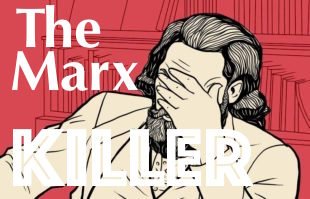This Is The Best Argument Against Marxism, And It is Absolutely Essential For Arguing Against Socialists

Marx was critiquing Capitalism as it was formulated by the Classical Economists of his day, which originated with Adam Smith.
Adam Smith and the Classical Economists were reasoning from the Intrinsic Theory of Value, which stated that value is intrinsic to objects, goods, and services, and can be measured objectively.
Marx noticed that if Intrinsic Value Theory is true then the result of every exchange is either a total wash or one party is always exploiting the other. Since total washes would not likely result in exchange, he concluded that the entire free market system of exchange was rooted in exploitation.
For instance, if I want to trade an original painting of mine for $200, either the painting is objectively more valuable than $200, and I am exploiting the person who is buying it, or $200 is objectively more valuable than the painting, and the buyer is exploiting the labor I used to produce it.
If Intrinsic Value Theory were true, either no exchanges would ever happen, or the result of every exchange is that one person trades something that is objectively of less value for something that is objectively of more value, and the other person gets screwed because they are giving away something of objectively more value than they are getting in return.
The conclusion then, as Marx pointed out, is that free market exchange is an inherently immoral and self-contradictory system.
Enter Subjectivity
The Intrinsic Theory of Value had many problems, but the most striking of which is called the Diamond-Water Paradox. This paradox outlined the inability for the Intrinsic Theory of Value to accurately predict and explain the differences of value of various different goods and services in the market, that could be readily observed by anyone, suggesting there was a problem with the theory.
In the 1860's Carl Menger resolved the paradox by introducing the Subjective Theory of Value. This alternative theory of value on which to found economics says that the value of a good is not determined by any inherent property of the good, nor by the amount of labor necessary to produce the good, but instead value is determined by the importance an acting individual places on a good for the achievement of his desired ends.
What this means is that an exchange can only happen if both parties are made better off by the exchange. If I value $200 more than I value the painting I have, and you value the painting more than you value $200 in your pocket, then we do the exchange and we are both better off for it.
If I value the painting more than the $200, I don't sell it. And if you value $200 more than the painting, you don't buy it. We haggle over the exchange rate to figure out at what point we are both happy because we are both, simultaneously, exchanging something of less subjective value for something of more subjective value.
If value were not subjectively variable no exchanges would ever happen, and also, if exchanges did happen, one party would always be exploiting the other. But since value is subjective, exchanges happen because neither party is being exploited by the other, both are made better off by the exchange, and thus free market exchange is neither immoral nor self-contradictory.
- KB
Thanks KB. That filled in a gap I didn't know was there. Appreciate the context. :)
no problem